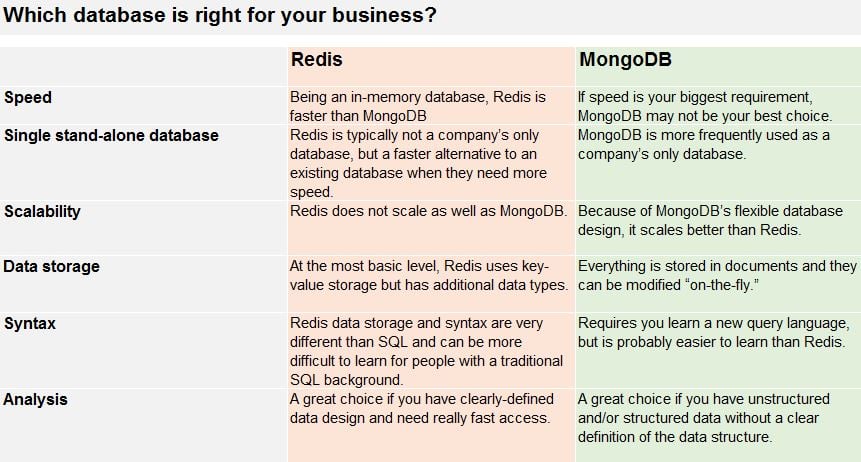
I've been running MongoDB in production for 6 years. Defended it in architecture reviews, built microservices on it, even evangelized it to skeptical teams. But MongoDB has become the database equivalent of that friend who borrows money and never pays it back - promising flexibility while delivering vendor lock-in, expensive scaling nightmares, and query performance that makes you question your architectural decisions.
MongoDB Atlas Will Bankrupt Your Startup
Let's talk cold, hard numbers. MongoDB's Atlas Flex Tier sounds fantastic at $30/month until production reality hits. I watched our Atlas bill explode from $200/month to $4,800/month in just three months. Same data, same queries, but MongoDB's "predictable" pricing proved about as reliable as JavaScript's == operator.
According to CloudChipr's brutal 2025 cost breakdown, MongoDB Atlas deployments routinely cost $10,000+ monthly for what PostgreSQL handles for $500 on comparable hardware. The SSPL licensing trap means you can't even escape to a competitor without rebuilding everything.
Real companies are jumping ship - SnapDeal dumped MongoDB after their Atlas bill hit $45,000/month for 2TB of data. For context, that same workload costs $1,200/month on PostgreSQL RDS with better performance.
This cost explosion isn't accidental - it's MongoDB's deliberate business model. Hook developers with cheap development tiers, then jack up prices once you're committed to their ecosystem. Meanwhile, PostgreSQL on AWS RDS delivers predictable pricing: $0.115/hour for db.r5.large with 16GB RAM. That's $84/month versus MongoDB's $4,800 monthly surprise.
MongoDB's Performance Is a Lie

Ever notice how MongoDB demos always use tiny datasets? There's a reason. MongoDB's "flexible schema" becomes a performance anchor when you hit real production scale. I learned this the hard way when our user collection hit 50GB and our user lookup queries (with proper indexes on userId and email) went from 50ms to 8 seconds overnight. The WiredTiger cache was thrashing between memory and disk, and connection pooling couldn't save us from the I/O bottleneck.
The WiredTiger storage engine was supposed to fix everything, but it's like putting racing stripes on a minivan. Still slow, just looks faster. Here's what MongoDB won't tell you: denormalization eats memory like Chrome eats RAM. I've seen production deployments where MongoDB consumed 3x the memory of PostgreSQL for identical data because every document stores redundant crap.
MongoDB's aggregation pipeline is where dreams go to die. I spent 4 hours debugging a 12-stage aggregation pipeline that was basically a JOIN with extra steps and 10x the latency. Meanwhile, the PostgreSQL version ran in 40ms with a simple LEFT JOIN.
McKnight Consulting Group's 2024 benchmark study shows PostgreSQL absolutely demolishing MongoDB across every workload type. For bulk JSON loads - MongoDB's supposed specialty - PostgreSQL was 34% faster. For analytical queries on JSON data, PostgreSQL delivered 4-15x better performance. These aren't synthetic benchmarks - they're real-world workloads that prove MongoDB's "document database" advantage is pure marketing fiction.
The performance gap is widening. PostgreSQL 16's parallel query improvements and JSONB path operations make document queries screaming fast. I migrated a product catalog search from MongoDB to PostgreSQL JSONB - 2.3 million products with nested category and attribute arrays. MongoDB's compound index on {category: 1, "attributes.price": 1} delivered 150ms average response times. PostgreSQL with a GIN index on the JSONB column and proper WHERE clauses using @> and @@ operators? 12ms average, with 99th percentile under 50ms. Same exact data structure, fundamentally better engineering.
MongoDB Wants to Be Your Whole Stack (And That's the Problem)
MongoDB isn't content being just a database anymore. They want to be your data platform, your analytics engine, your search solution, your mobile backend. Jack of all trades, master of none.
I watched MongoDB kill Atlas Device Sync - the feature that got half my team excited about MongoDB in the first place. September 2025 deadline. Thanks for the 6-month notice on something central to our mobile architecture, MongoDB.
MongoDB's sharding is operational hell. I've configured Cassandra clusters that were easier to manage than a 6-shard MongoDB setup. The replica set configuration has more edge cases than JavaScript type coercion. One network hiccup and you're debugging split-brain scenarios at 2 AM.
Meanwhile, PostgreSQL just works. Redis just works. They do one thing well instead of trying to be everything to everyone.
The Migration Momentum is Real
I'm not the only one done with MongoDB's bullshit. Stack Overflow's 2024 Developer Survey shows PostgreSQL climbing to 49% developer usage while MongoDB drops to 24%. That's not just preference - that's developers voting with their deployments.
The smart money is already moving. Uber's Cassandra tolerance engineering shows their massive investment in Cassandra infrastructure for fault tolerance. Discord switched from MongoDB to PostgreSQL for message storage and saw dramatic performance improvements. These aren't small companies making emotional decisions - they're data-driven migrations based on cold, hard metrics.
Choose a database that respects your intelligence, your budget, and your time. MongoDB isn't it anymore.
The Path Forward: Purpose-Built Database Supremacy
The good news is that every use case MongoDB pretends to solve has a better alternative. Whether you need PostgreSQL's relational power with JSONB flexibility, Redis's sub-millisecond performance, or Cassandra's true linear scalability - there's a database engineered specifically for what you're building instead of trying to be everything to everyone.
But which alternative fits your exact needs? The answer depends entirely on what you're building. A real-time gaming leaderboard needs different database characteristics than an analytics dashboard or an e-commerce catalog.
Stop letting MongoDB's mediocrity hold you back. Let's cut through the marketing bullshit and match databases to actual use cases based on cold performance metrics and production battle-testing.